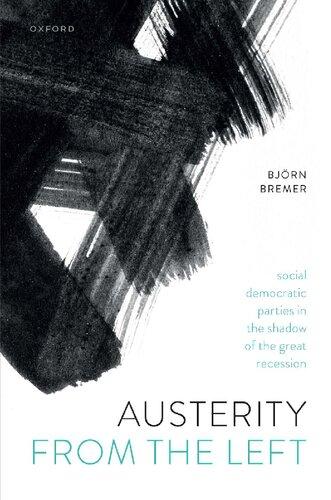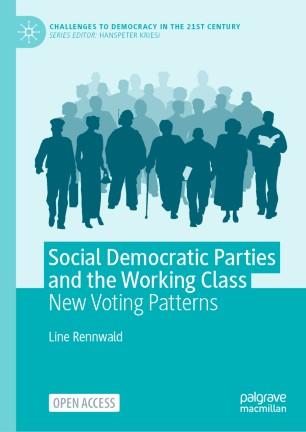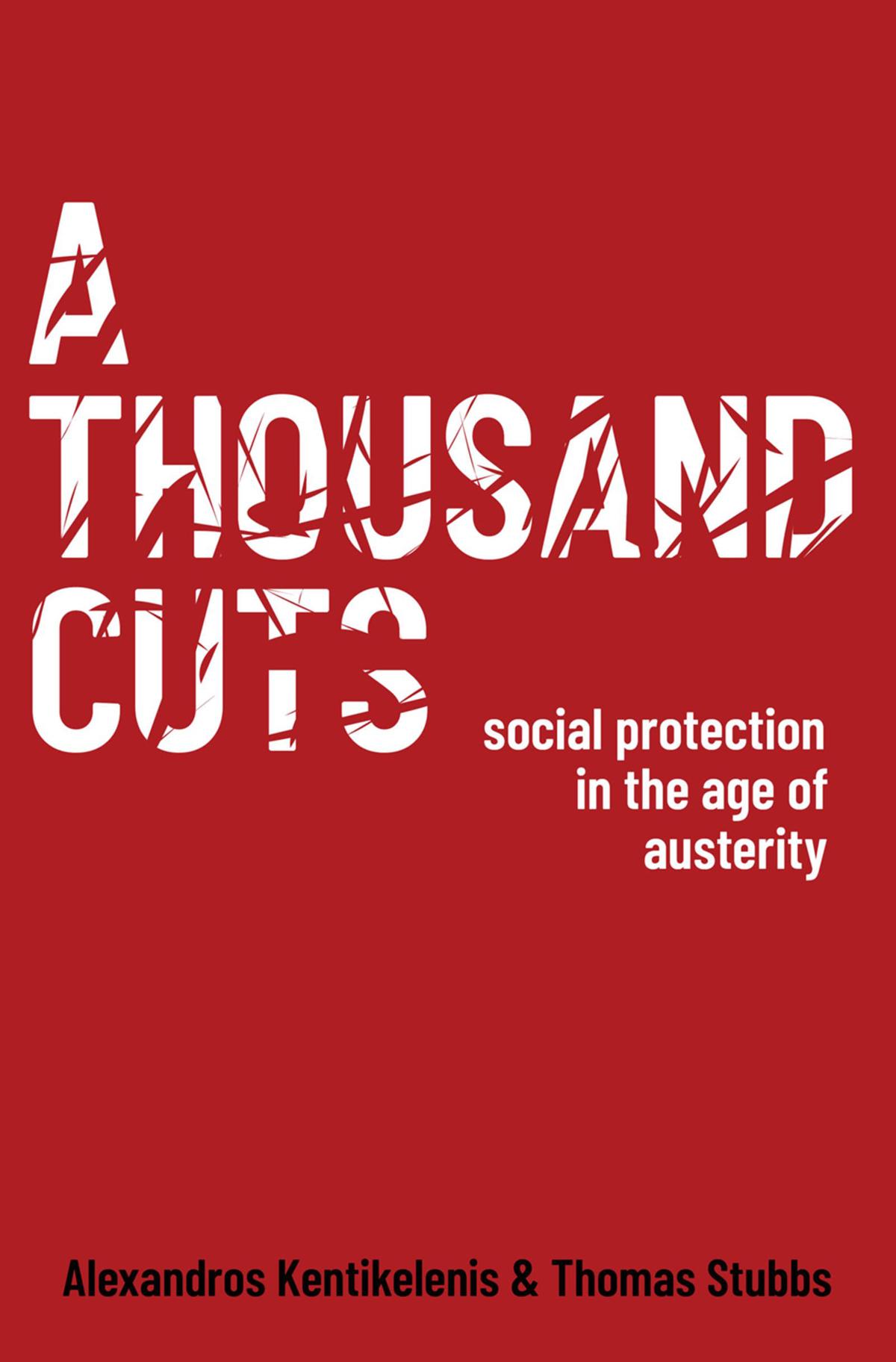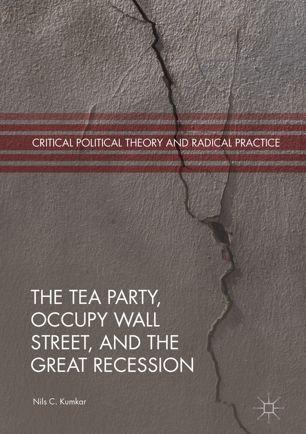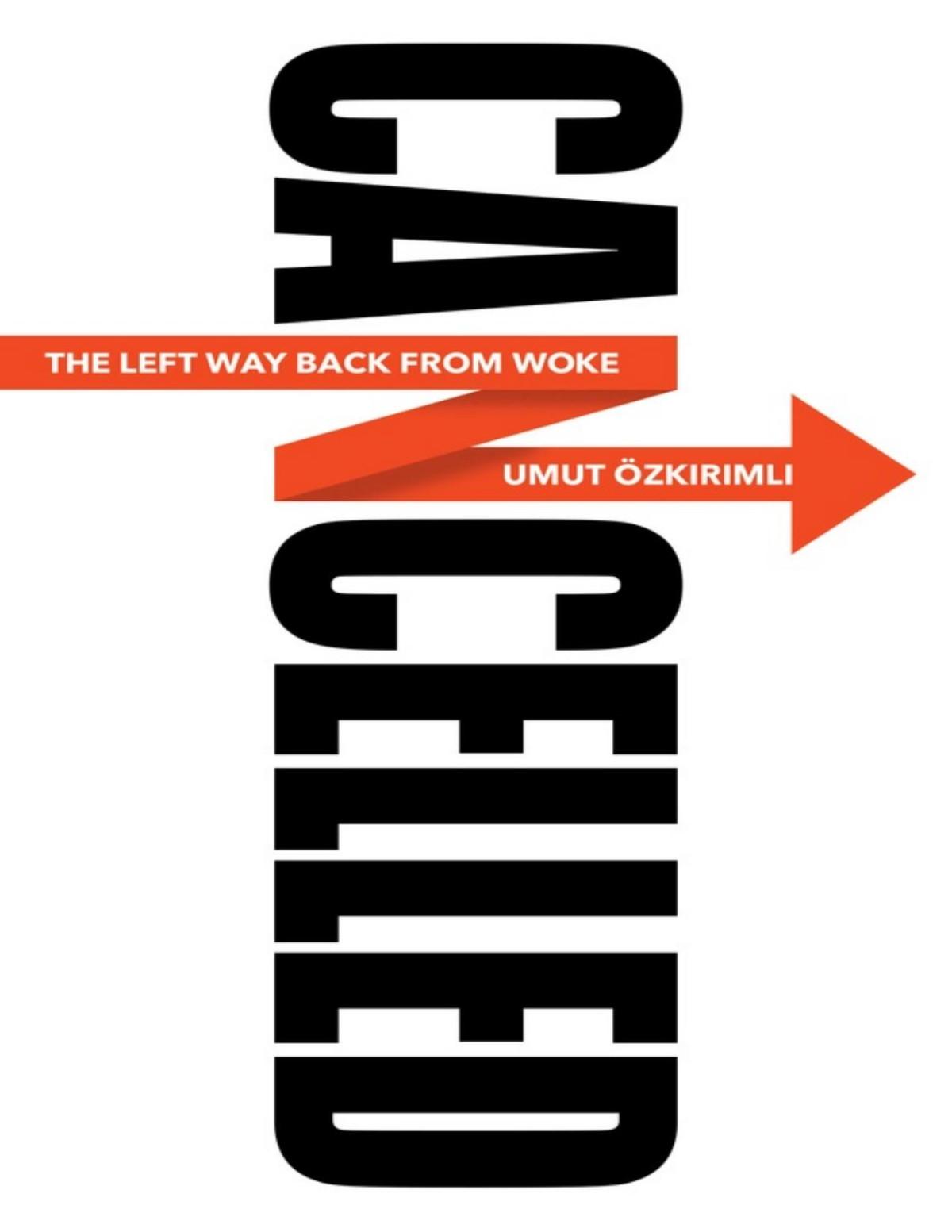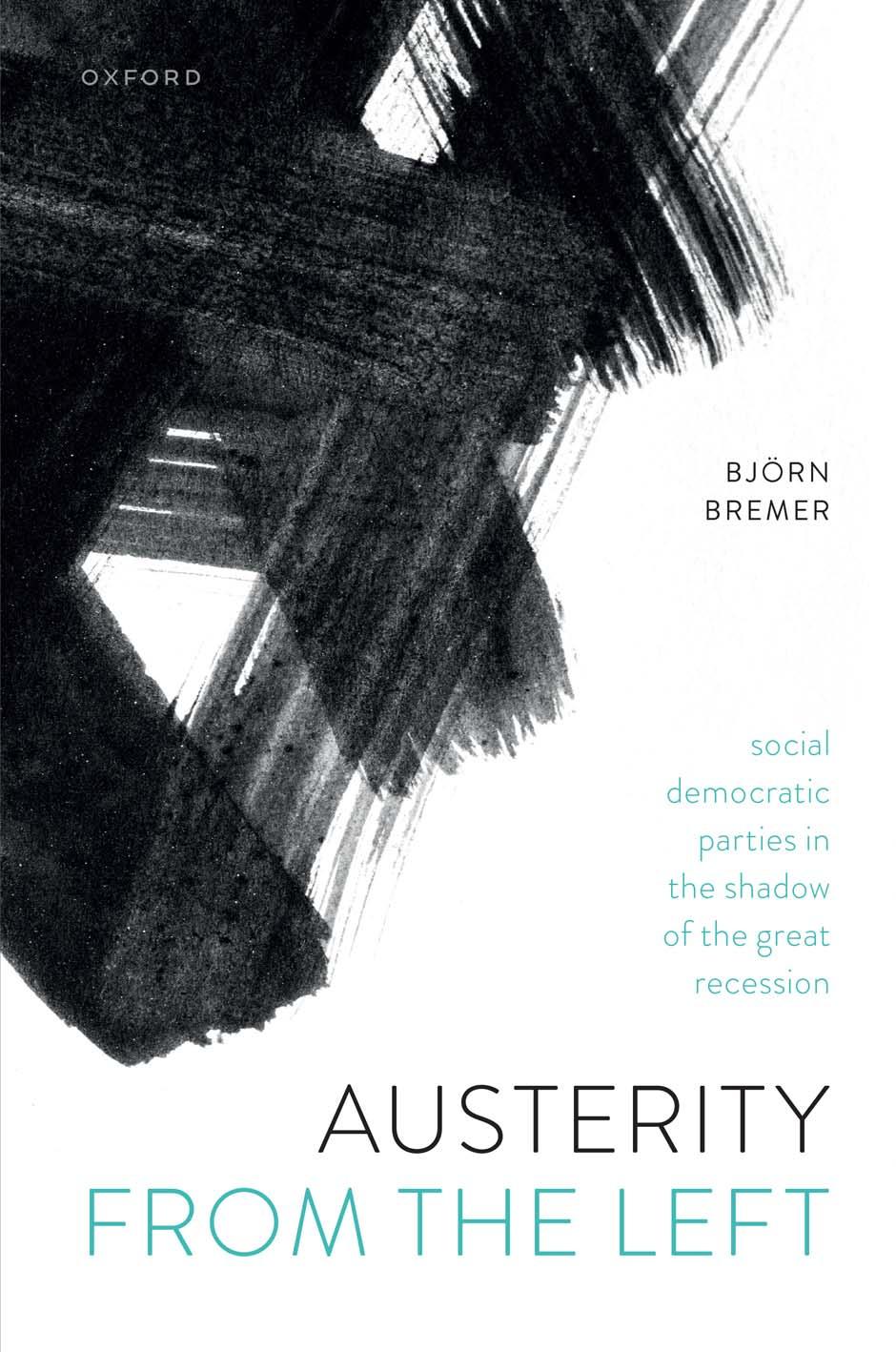Austerity from the Left. Social Democratic Parties in the Shadow of the Great Recession Björn Bremer Visit to download the full and correct content document: https://ebookmass.com/product/austerity-from-the-left-social-democratic-parties-in-the -shadow-of-the-great-recession-bjorn-bremer/
More products digital (pdf, epub, mobi) instant download maybe you interests ...
Social Democratic Parties and the Working Class: New Voting Patterns 1st ed. Edition Line Rennwald
https://ebookmass.com/product/social-democratic-parties-and-theworking-class-new-voting-patterns-1st-ed-edition-line-rennwald/
A Thousand Cuts : Social Protection in the Age of Austerity Alexandros Kentikelenis
https://ebookmass.com/product/a-thousand-cuts-social-protectionin-the-age-of-austerity-alexandros-kentikelenis/
Citizens and the Crisis: Experiences, Perceptions, and Responses to the Great Recession in Europe 1st Edition Marco Giugni
https://ebookmass.com/product/citizens-and-the-crisisexperiences-perceptions-and-responses-to-the-great-recession-ineurope-1st-edition-marco-giugni/
American Hegemony after the Great Recession: A Transformation in World Order 1st Edition Brandon Tozzo (Auth.)
https://ebookmass.com/product/american-hegemony-after-the-greatrecession-a-transformation-in-world-order-1st-edition-brandontozzo-auth/
The Tea Party, Occupy Wall Street, and the Great Recession 1st ed. Edition Nils C. Kumkar
https://ebookmass.com/product/the-tea-party-occupy-wall-streetand-the-great-recession-1st-ed-edition-nils-c-kumkar/
Cancelled. The Left Way Back from Woke Umut Ozkirimli
https://ebookmass.com/product/cancelled-the-left-way-back-fromwoke-umut-ozkirimli/
Vow of the Shadow King (Bride of the Shadow King Book
2) Sylvia Mercedes https://ebookmass.com/product/vow-of-the-shadow-king-bride-ofthe-shadow-king-book-2-sylvia-mercedes-3/
Vow of the Shadow King (Bride of the Shadow King Book
2) Sylvia Mercedes https://ebookmass.com/product/vow-of-the-shadow-king-bride-ofthe-shadow-king-book-2-sylvia-mercedes-2/
Vow of the Shadow King (Bride of the Shadow King Book
2) Sylvia Mercedes https://ebookmass.com/product/vow-of-the-shadow-king-bride-ofthe-shadow-king-book-2-sylvia-mercedes/
AusterityfromtheLeft AusterityfromtheLeft SocialDemocraticPartiesintheShadow oftheGreatRecession BjörnBremer GreatClarendonStreet,Oxford,OX26DP, UnitedKingdom
OxfordUniversityPressisadepartmentoftheUniversityofOxford. ItfurtherstheUniversity’sobjectiveofexcellenceinresearch,scholarship, andeducationbypublishingworldwide.Oxfordisaregisteredtrademarkof OxfordUniversityPressintheUKandincertainothercountries ©BjörnBremer2023
Themoralrightsoftheauthorhavebeenasserted Allrightsreserved.Nopartofthispublicationmaybereproduced,storedin aretrievalsystem,ortransmitted,inanyformorbyanymeans,withoutthe priorpermissioninwritingofOxfordUniversityPress,orasexpresslypermitted bylaw,bylicenceorundertermsagreedwiththeappropriatereprographics rightsorganization.Enquiriesconcerningreproductionoutsidethescopeofthe aboveshouldbesenttotheRightsDepartment,OxfordUniversityPress,atthe addressabove
Youmustnotcirculatethisworkinanyotherform andyoumustimposethissameconditiononanyacquirer
PublishedintheUnitedStatesofAmericabyOxfordUniversityPress 198MadisonAvenue,NewYork,NY10016,UnitedStatesofAmerica
BritishLibraryCataloguinginPublicationData Dataavailable
LibraryofCongressControlNumber:2023930922
ISBN978–0–19–287221–0
DOI:10.1093/oso/9780192872210.001.0001
Printedandboundby CPIGroup(UK)Ltd,Croydon,CR04YY
LinkstothirdpartywebsitesareprovidedbyOxfordingoodfaithand forinformationonly.Oxforddisclaimsanyresponsibilityforthematerials containedinanythirdpartywebsitereferencedinthiswork.
Tomyparents,IrenandKlaus Acknowledgements WritingthisbookwasajourneythatIcouldnothavecompletedonmyown. ThebookoriginallybeganasaPhDthesisandmyutmostgratitudegoesto mysupervisorHanspeterKriesi.Hanspetergavemethefreedomtochoosea topicthatIcaredeeplyaboutandencouragedmetoexploreitinmanydifferentways.Thefinalproductbenefitedtremendouslyfromhisfeedbackand themanydiscussionsabouttheeconomiccrisisandsocialdemocracythatwe havehadoverthepastfewyears.Mostimportantly,Hanspeter’sremarkable desiretounderstandthesocialworldarounduswasaconstantmotivation throughoutthisendeavour.Hehasbecomemyacademicrolemodel,andI willremainforevergratefulthatIhadthechancetoworkwithandlearnfrom him.
Innumerablethanksalsogototheothermembersofmythesis committee—DorotheeBohle,HerbertKitschelt,andJonasPontusson— whoseacademicworkwasaninspirationforthisbook.Theirexceptional feedbackontheoriginalthesisallowedmetorethinksomeofthebasic assumptionsbehindmyresearch,andthisbookwouldnotexistwithouttheir encouragementtokeepimproving.Ofcourse,noneofthembearanyresponsibilityforerrorsinthebook,asIinevitablyfailedtoaddressalloftheir comments.
IamindebtedtoRetoBürgisserandSeanMcDaniel,whoguidedmy researchasreliableandinspiringcollaborators.Theircontributionstoindividualpartsofthisbookwerecritical,andIamverygratefulthatthey generouslyallowedmetore-usethismaterialfromourcollaborations.This bookwouldnotbethesamewithoutthem,andIlookforwardtocontinuing toworkwiththeminthefuture.
ThethesisuponwhichthisbookisbasedwasoriginallywrittenattheEuropeanUniversityInstitute(EUI),whereIwaspartofaresearchprojectstudyingthepoliticalconsequencesoftheGreatRecession,thePOLCONproject.I gratefullyacknowledgefinancialsupportfromtheEuropeanResearchCouncil(ProjectID338875)andtheGermanAcademicExchangeServicethat fundedmypositionasaresearcherinthisproject.ThePOLCONproject, andtheEUImoregenerally,wasthebestpossibleenvironmenttowritemy PhDthesisandIamindebtedtomanyFlorentinecolleaguesforalltheirfeedbackandhelp:ArgyriosAltiparmakis,AbelBojar,EndreBorbáth,Pepper
Culpepper,KoenDamhuis,PhilippGenschell,TheresaGessler,LukasHaffert,AntonHemerijck,SophiaHunger,SwenHutter,EllenImmergut,JasmineLorenzini,GiorgioMalet,JuliaSchulte-Cloos,DanielSchulz,Guillem Vidal,andChendiWang.
TheWZBSocialScienceCentreBerlinandtheEuropeanInstituteatthe LSEhostedmeduringmyfieldworkinBerlinandLondon,whiletheHertie SchoolofGovernanceofferedmearefugetofinishmythesis.Mythanksgo toeachinstitutionfortheirextraordinaryhospitalityandWolfgangMerkel, WaltraudSchelkle,HannaSchwander,andMarkusJachtenfuchsfortheir kindinvitationstospendtimeintheseoutstandingresearchenvironments.
IcouldnothaveimaginedabetterplacethantheMaxPlanckInstitutefor theStudyofSocieties(MPIfG)toturnthethesisintoabook.Mycolleagues’ unrivalleddesiretoexplainthepoliticaleconomyofcontemporarycapitalismwasthebestincentivetokeepworkingonthisproject.Theycreatedan exceptionallystimulatingresearchenvironment,evenwhentheCOVID-19 pandemicforcedustoworkfromhome.IamparticularlygratefultoLucio Baccaroforgivingmethetimeandspacetoturnthethesisintoabook manuscriptandtomanyothercolleaguesforreadingpartsoftherevised manuscript:FabioBulfone,DonatodiCarlo,ErikNeimanns,MartinHöpner,SidneyRothstein,MischaStratenwerth,AriannaTassinari,andLeon Wansleben.
BeyondtheinstitutionswhereIhadtheprivilegetowork,numerousother peoplecontributedtothisbook.Alargenumberofpoliticiansandpolicymakersgenerouslyagreedtospeakwithme,providinguniqueinsights intotheinnerworkingsoftheBritishLabourPartyandtheGermanSPD. Overtheyears,Iwasalsofortunatetoreceiveinsightfulfeedbackonparts ofthemanuscriptfrommanystellaracademics,includingTarikAbouChadi,DespinaAlexiadou,KlausArmingeon,LucyBarnes,BobHancké, CharlotteCavaille,MariusBusemeyer,SiljaHäusermann,TimHicks,Josef Hien,EvelyneHübscher,ErikJones,DanKelemen,AchimKemmerling, ThomasKurer,MatthiasMatthijs,LineRennwald,ArminSchäfer,Tobias Schulze-Cleven,andTimVlandas.
IalsothankDominicByattandthreeanonymousreviewersfromOxford UniversityPresswhoprovidedextremelydetailedfeedbackonmyfirstdraft. FrancesTyeandSharonAdamshelpedtomakethemanuscriptreadable, whileMaureenLechleitnerprovidedinvaluableadministrativesupportduringmytimeinFlorence.Inthefinalstagesoftheproject,RobinHetzel providedthebestpossibleresearchassistance.
Despiteallofthisoutstandingacademicsupport,writingfirstaPhDthesis andthenabookcanbealonelyendeavour,especiallyduringaglobalpandemic.CountlessfriendsinFlorence,Berlin,Hamburg,theRhineland,and aroundtheentireworldprovidedmuch-neededdistraction,andIamgrateful toallofthem.SpecialthanksgotoAndreasWinkler,JensvanStraalen,and LeneKorseberg,whowerebraveenoughtolivewithmeinFlorence.They werewonderfulcompany,ensuringthatItrulyfeltathomeinItaly.
Finally,thegreatestthanksgotomyfamily.MypartnerMyhadtoendure endlessramblingsaboutmyworkandwitnessperiodsofdoubtsandstress. Nonetheless,Mystillputupwithallmyquirksandbadhabits,liftedmyspirits whenitwasmostneeded,andshowedmethattherearemanythingsthatare moreimportantthanwritingthisbook.Herlovehasbeenmygreatestsource ofstrengthinthepastdecade.
Thesupportfromtherestofmyfamilygoesbackevenfurther.Myparents,IrenandKlaus,andmysiblings,TorbenandSvea,havebeenmyrock throughoutmyentirelife.Theirunwaveringfaiththatmyworkmatters wasthebestpossibleencouragementtocompleteit.Especiallymyparents’ unconditionalloveandsupporthelpedmeingoodandinbadtimes,andI couldnothavewrittenthisbookwithoutthem.Itisdedicatedtothem.
List ofFigures 1.1Averagevoteshareofleft-wingpartiesinWesternEurope,1945–2020
3.2Averagemarginaleffectofthecrisisonthesalienceofeconomicissues
3.3Salienceofdifferenteconomicissuesforsocialdemocraticpartiesbycountry
3.4Averagepartypositionsoneconomicissuesbypartyfamilyandcountry
3.5Averagemarginaleffectofthecrisisoneconomicpositions
4.7Interactioneffectofeconomicgrowthandthesubjectiveevaluationofthe economyonthepredictedprobabilitiesofdebtaversion
5.1Distributionofsupportforhighergovernmentspending,lowertaxes,and lowergovernmentdebt
5.2Distributionofsupportforfiscalconsolidationbytreatment
5.3Averagesupportforfiscalconsolidationbytreatment
5.4Supportforfiscalconsolidationbytrade-offandincome/partisanship
5.5Supportforfiscalconsolidationbytrade-offandcountry
5.7Distributionoftheratingsofallfiscalpackagesbythechangein governmentdebt
5.8Estimatedmarginalmeansfromconjointsurveyexperimentbyincome groupandpartisanship
5.9Estimatedmarginalmeansfromconjointsurveyexperimentbycountry
6.1UKrealGDPgrowthandunemploymentrate,1970–2015
6.2Left–rightpositionofLabourandtheConservativesovertime
6.3Left–rightpositionoftheLabourPartyfordifferenteconomiccategories overtime
6.4UKgovernmentspendingandrevenues,1970–2015
6.5UKpolls,2005–15
6.6AttitudestowardsgovernmentdebtintheUK,2010–15
6.7UKinterestratesongovernmentbonds,1960–2015
7.1GermanrealGDPgrowthandunemploymentrate,1991–2015
7.2Left–rightpositionoftheSPDandCDU/CSUovertime
7.3Left–rightpositionoftheSPDondifferenteconomiccategoriesovertime
7.4Germangovernmentspendingandrevenues,1991–2015
7.5AttitudestowardsgovernmentdebtinGermany,2010–15
7.6Germanpolls,2005–15
7.7InterestratesonGermangovernmentbonds,1991–2015
8.1SupportforsocialdemocraticpartiesintwelveWesternEuropean countries,2005–17
8.2Averagemarginaleffectofausterityonsupportforsocialdemocratic partiesbyincumbency
8.3Distributionofattitudestowardsspendingcutsandthebudgetdeficitby thepropensitytovotefortheLabourParty
8.4Estimatedeffectofattitudestowardsthebudgetdeficitonthepropensity tovotefortheLabourParty
8.5Estimatedeffectofattitudestowardsspendingcutsonthepropensityto votefortheLabourParty
List ofTables 1.1Researchdesign
1.2Logicofcaseselection
2.1Paradigmchangeandtheinterplayofideasandelectoralconstraints
3.1Listofeconomicissuecategories(adoptedfromKriesietal.,2008)
4.1Debtaversionbyideology
5.1Designofthesplitexperiment
5.2Attributesandlevelsoftheconjointexperiment
6.1Listofelectionsbytimeperiod
7.1Listofelectionsbytimeperiod
Introduction Introduction BeforetheCOVID-19pandemicravagedtheworld,theGreatRecession rankedasthegreatesteconomiccrisisinEuropesincetheGreatDepression.1ThecrisiswastriggeredbythecollapseoftheAmericaninvestment bankLehmanBrothersinSeptember2008,whichsentshockwavesthrough theinternationalfinancialsystemandcreatedadeepdeflationaryspiral.The GermanFinanceMinister,PeerSteinbrück,latersummarizedthefeelingthat prevailedamongthegoverningeliteatthattime,saying,‘wewerealllooking intotheabyss’(DerSpiegel, 2008).
Inresponsetothissituation,almostallgovernmentsintheadvanced economiesrespondedresolutely:theydevelopedfar-reachinggovernment programmesinordertosavetumblingfinancialinstitutionsandtomaintainoutput(Armingeon, 2012; PontussonandRaess, 2012; Skidelsky, 2010). ThreedecadesaftertheKeynesianconsensushadfallenapartintheeconomic turmoilofthe1970s,policymakersused‘emergencyKeynesianism’(Hall, 2013)topreventadepressiononthescaleofthe1930s.TheG20(‘Group ofTwenty’)collectivelyvowedto‘usefiscalmeasurestostimulatedemand torapideffect’,andneoclassicaleconomistRobertLucasevencomplained that‘everyone[was]aKeynesianinafoxhole’(Fox, 2008).2However,only afewmonthsafterthebeginningofthefinancialcrisis,theeconomicwinds changedoncemore,andausteritycamebackwithavengeance.
TheendoftheKeynesianerabeganwiththebailoutofGreeceinMay2010, whichwasmadeconditionalonthecountry’sadherencetostrictausterity measures.Shortlyafterwards,worldleadersagreedon‘growth-friendlyfiscal consolidation’attheG20meetinginJune2010.Accordingtoconventional wisdom,theGreekcrisisillustratedtheperilsofgovernmentdebt.Itunderminedargumentsforfurtherfiscalstimulusandcontributedtoapremature
1TheGreatRecessionisusedhereasatermthatreferstoboththe2007–8financialcrisisandthe eurozonecrisis;i.e.itconceptualizesbothcrisesasonelargereconomiccrisis.
2Fiveyearsearlier,Robert Lucas (2003)haddeclaredinhispresidentialaddresstotheAmericanEconomicAssociationthatsuchstimulusprogrammeswerenolongernecessarybecausethe‘centralproblem ofdepression-prevention[had]beensolved’.
AusterityfromtheLeft.BjörnBremer,OxfordUniversityPress.©BjörnBremer(2023).
DOI:10.1093/oso/9780192872210.003.0001
rushtoausterity,especiallyinEurope.Asthe‘American’financialcrisiswas reimaginedasa‘European’sovereigndebtcrisis,governmentsofallstripes andcoloursimplementedausteritybyslashinggovernmentspendingand/or increasingtaxes.Thistransformationofafinancialcrisisintoafiscalone confusedcausewitheffect(Tooze, 2018),butitwastheperfectoutcomefor financialmarketactors:itdivertedattentionfromthefailuresofthefinancial system,as‘excessive’levelsofgovernmentdebtcametobeperceivedasthe greatestdangertotheinternationaleconomicsystem.
Subsequently,thepressurewasonmonetarypolicytosupportdemandin Europe.Fiscalausteritywascombinedwithunconventionalmonetarypolicies,ascentralbanksdevisedtoolsforanunprecedentedlevelofmonetary expansion.ThisprotectedmosteconomiesinEuropefromadepressionon thescaleofthe1930s,buttheeconomicandpoliticalconsequencesofthenew macroeconomicregime,whichcombinedausteritywithultra-loosemonetarypolicies,werestilldramatic.Theeurozoneremainedinaperpetualstate ofcrisisforseveralyearsasGreece,Ireland,Portugal,Cyprus,andSpainhad tobebailedoutbytheInternationalMonetaryFund(IMF)andtheEuropean Union(EU)(Walteretal., 2020).Othercountries,likeItalyandFrance,also continuedtofightdeflationarypressures.Outputdroppedsubstantiallyand unemploymentreachedlevelsthathadneverbeenseeninpost-warEurope. Foralongtime,theEuropeaneconomyoperatedbelowitsfullcapacityasthe Continentexperienceda‘lostdecade’(ChinnandFrieden, 2011)andagreat dealofeconomichardship.
ThecrisiscreatedadivisionbetweentheprosperousNorthandthestrugglingSouth,butpopulardiscontentwaswidespreadacrossbothregions:the debtorcountriesopposedthenorthern Spardiktat,whilethecreditorswere unwillingtopayfortheperceivedlavishnessoftheSouth.Theeconomiccrisisandtheausteritypoliciesthatwereadoptedinresponsetoit,therefore, alsocreatedapoliticalcrisis:itincreasedelectoralvolatility,contributedto adeclineofmainstreamparties(Bojaretal., 2022; Bremeretal., 2020; Hübscheretal.,2021),andunleashedpopulistforcesacrossEurope(Eichengreen, 2018; Hopkin, 2020; KriesiandPappas, 2015).Thisdramaticdeclineinthe supportformainstreampartieseventhreatenedthestabilityofpartysystems (HutterandKriesi, 2019)andunderminedsatisfactionwithdemocracyin Europe(Kriesi, 2018).
Despitetheeconomicandpoliticalramificationsofausterity,Europe’s politicalmainstreamremainedcommittedtoitforalongtime.In2010, austeritybecametheonlygameintownandthe‘austeritysettlement’,i.e. itsdominanceacrossthepoliticalspectrum,sawgovernmentsthroughoutEurope,albeitindifferentcontextsandtovaryingdegrees,implement
austeritymeasuresfornearlyadecade.Austerity,however,shiftedtheburden ofthecrisisontotheshouldersoftheweakestcitizens,andthemostsurprisingelementofthissettlementisthewayinwhichsocialdemocraticparties, bothinandoutofpower,haveacquiescedtoit.3
Atfirst,thefinancialcrisispresentedsocialdemocraticpartieswitha uniqueopportunitytorenewtheir raisond’être.Ithighlightedthevulnerabilitiesofunfetteredcapitalismandunderminedthelegitimacyoftheexisting economicparadigm.Still,socialdemocratswereunabletoformulateacoherentintellectualresponseandlargelyacceptedtheshifttowardsausteritythat beganin2009.In‘debtorcountries’,thecentre-leftbowedtoexternalpressure andacceptedausterityasanecessaryevil(e.g.Greece,Spain,andIreland); in‘creditorcountries’,socialdemocraticpartieshelpedtoimposeausterity ondebtorcountriesandpursuedfiscalconsolidationathome.Forexample, inGermany,theSocialDemocraticParty(SPD)supportedtheintroductionofaconstitutionaldebtbrakein2009andthebalanced-budgetpolicy (SchwarzeNull)after2013.Similarly,theFrenchgovernmentincreasedtaxes andreducedpublicspendingafteradoptingthe‘PactforCompetitiveness’ undersocialistPresidentFrançoisHollande.Outsidetheeurozone,before the2010election,theBritishLabourPartypromisedcutsthatwouldbe ‘deeperandtougher’thanMargaretThatcher’s(Elliott, 2010),andincludeda ‘budgetresponsibilitylock’onthefirstpageofitsmanifestoin2015.Accordingtosomeanalyses,socialdemocraticpartiesbecameevenmorelikely toimplementausterityandretrenchthewelfarestatethanthecentre-right (Armingeonetal., 2016; Raess, 2021).
Thepuzzleandresearchquestion Socialdemocraticparties’accommodationofausterityispuzzlingforseveral reasons.First,historically,socialdemocraticpartieshadbuiltthewelfarestate inmostEuropeancountries(Esping-Andersen, 1985; Korpi, 1983; Stephens, 1979),withtheaimofprotectingthemostvulnerablepeopleinsociety fromunfetteredmarketcapitalism.Thedominantmodusoperandiofthese partiesinthepost-warperiod,atleastuntilthelate1970s,wasbasedonKeynesianpoliciesofdemandmanagement(Hall, 1989; Przeworski, 1985).By minimizingunemployment(Hibbs, 1977),thisstrategyallowedtheleftto limittheadverseeffectsoffreemarketsontheircitizens.Althoughsocial
3Following Kitschelt (1994,p.1),socialdemocracyisemployedasagenericconceptthatcovers‘a cohortofpartiesthatrunundersocialist,labourand,socialdemocraticlabels’.Iwillusetheterms‘social democratic’,‘centre-left’,and‘moderateleft’interchangeablytorefertotheseparties.
democraticpartiesmovedtowardsthecentreattheendofthetwentieth centuryandadoptedmoreliberaleconomicpoliciesaspartofthe‘Third Way’(Giddens, 1998),the‘essentialandenduring’goalofsocialdemocracy wasstilltominimizethe‘costofcapitalism’fortheworkingclasses(Hirst, 1999,p.87).⁴Despitethenumeroushistoricalandgeographicalincarnationsofsocialdemocracy,itsadherentsalwaysattemptedtodecreasesocial inequalitybycreatingtheconditionsfor(full)employmentandastrongwelfarestate.However,duringtheGreatRecession,austeritychallengedboth.It contributedtothedeflationaryspiralinEuropeandunderminedthefiscal basisofthewelfarestatethatsocialdemocraticpartieshadvigorouslyfought forinthetwentiethcentury.
Second,theGreatRecessionpresentedauniqueopportunityforsocial democracytopushforparadigmchangeafterthirtyyearsofeconomicliberalization.Votershadalreadypunishedsomesocialdemocraticpartiesfor theirThirdWaypoliciesbefore2008,andthecrisiswouldhavebeenanopportunemomentforthelefttofacilitateacountermovementinthespiritofKarl Polanyi (2001).Inthepast,socialdemocratswereabletodothis:inresponse toeconomiccrises,theydevelopedandimplementedneweconomicideas (e.g. Berman, 1998; Blyth, 2002).TheGreatRecessionprovidedasimilar opportunityforthecentre-lefttoexperimentwithnewpoliciesandreform thedominanteconomicorder.⁵Seekingnewallianceswithactorsinpolitics,socialmovements,andacademia,socialdemocratscouldhaveralliedthe leftbyopposingausterity.Theirfailuretodosocontributedtothe‘strange non-death’(Crouch, 2011)or‘resilience’(SchmidtandThatcher, 2013)of neoliberalism.
Third,aPolanyian-stylecountermovementbecameevenmorelikelyover timebecauseausterity,arguably,didnotwork.FromaKeynesianpointof view,austeritymadelittlesenseinthepost-crisiscontext(Blyth, 2013; Blyth andMatthijs,2017;Sandbu,2015)andthereisgrowingevidencethatitmade thecrisisworsebycontributingtoadeflationaryspiral(e.g. Blanchardand Leigh,2013;Heimberger,2017).Itcontributedtoalow-growthenvironment, worsening‘secularstagnation’(Summers,2018)tendenciesinEurope,which inturnaggravatedthefiscalcrisisthere.Itpushedtheeurozonetowardsthe
⁴Iusetheterm‘ThirdWay’,coinedbyAnthonyGiddens,todescribeageneralturntowardscentrist policiesbysocialdemocraticpartiesattheendofthetwentiethcentury,whichiswelldocumented(e.g. Callaghan, 2000; Glyn, 2001; Lavelle, 2008; Pierson, 2001a).
⁵Therewasafleetingmomentatthebeginningofthecrisiswhenitseemedthatsocialdemocratswere capableofdoingthisagain.IncountriesliketheUnitedKingdom(UK),Germany,andSpain,theyplayed akeyroleintheinitialresponsetothefinancialcrisis,whiletheelectionofBarackObamaasUSPresident inNovember2008invigoratedprogressiveforcesacrosstheworldwithhope.Theydevelopedarangeof demandsfornewfinancialregulationandfuture-orientedinvestmentprogrammesandwereconcerned withprotectingcitizensfromtheeffectsofthefinancialcrisis.
brinkofdisintegration(Mody, 2018; Walteretal., 2020)andoverburdened monetarypolicyasthemaininstrumentwithwhichtostabilizedemandin Europe.Inaneraofextremelylowinterestrates,whichmadeborrowing cheap,governmentsfailedtoseizethemomenttoupdatecrumblinginfrastructures,investinhumanandphysicalcapitaltoraiseproductivity,and embarkonthetransitiontoagreeneconomy.Rather,theyoptedtocutpublic spendingandhiketaxes,whichchokedofftherecovery.Thiscreatedeconomicgrievances,whichunderminedEurope’ssocialcontract.Atleastin hindsight,theeconomiccaseforafiscalpolicyotherthanausterityseems obviousfortheleftinsuchalow-growthenvironment,inwhichborrowing ischeap.
Finally,theGreatRecessionalsocontributedtosignificantelectoralturmoilontheleft(Roberts, 2017).Whiletheeconomiccrisispushedvoters intothearmsofradicalright-andleft-wingparties(Hopkin, 2020),social democraticpartieswereunabletocapitalizeontheeconomiccrisis.Insome Europeancountries,likeGreece,France,andtheNetherlands,socialdemocraticpartiesexperiencedelectoralannihilation,buttheyalsolostsupport dramaticallyinmanyothercountries,includingthoseasdiverseasGermany, Italy,andFinland(Benedettoetal., 2020).Overall,thevoteshareofsocial democraticpartiesinWesternEuropedroppedsignificantlyinthewakeof theglobalfinancialcrisis,asshowninFigure1.1.Thissituationwasremarkablysimilartothatofthe1930s,whenmanysocialdemocraticpartieshad supportedausterityduringtheGreatDepression,alsowithdisastrousconsequences.⁶Byprolongingtherecessionandallowingunemploymenttoreach recordlevels,austerityhadthendividedthelabourmovementandpushed votersintothearmsoffascistparties.Inlightofthishistoricalexperience andtheelectoralslumpofthecentre-leftfollowingtheGreatRecession,itis particularlysurprisingthatsocialdemocraticpartiesboughtintotheausterity settlementagain.
Thisbookexplainswhysocialdemocraticpartiesacceptedausterityand exploresthepoliticalconsequencesofthisdecision.Forthispurpose,Idefine austerityasamacroeconomicpolicythataimsatfiscalconsolidation(i.e. thereductionofgovernmentdebt)duringhardeconomictimes.Inother words,inusingtheterm‘austerity’Iamreferringtofiscalconsolidation implementedwhenagiveneconomyisoperatingbelowitspotential.In theory,suchaprogrammecanbeachievedindifferentways;forexample, itmightbeusefultodistinguishbetweenexpenditure-andrevenue-based consolidations.Inpractice,however,austeritypackagesofteninclude‘some
⁶Forexample,LabourPrimeMinisterRamsayMacDonaldformedaNationalCoalitiongovernmentto implementausterityintheUK(Skidelsky,1970),whiletheGermanSPDrejectedKeynesian-stylepolicies andsupportedtheausteritymeasuresimplementedbythegovernmentunderHeinrichBrüning(Berman, 1998).
Vote share (in %)
Figure1.1 Averagevoteshareofleft-wingpartiesinWesternEurope,1945–2020
Note: Thefigureshowstheaveragevotesharethatmoderateandfar-leftpartiesreceivedin nineteenWesternEuropeancountries.Foranygivenyear,thesharewascalculatedbytakingthe averageofthevotesharethatagivenpartyhadreceivedinthelastelectionpriortothat particularyear.ThecountriesincludedareAustria,Belgium,Cyprus,Denmark,Finland,France, Germany,Greece,Italy,Ireland,Luxembourg,Malta,Netherlands,Norway,Portugal,Sweden, Spain,Switzerland,andtheUK.
combinationofmeasurestoreducepublicexpenditureandtoincreasetax revenuesandothergovernmentreceipts(suchasthesellingoffofnonfinancialassets)’(Konzelmann, 2014,p.703).Therefore,Idonotmakesuch adistinction;rather,Ifocusonthebroadoutlinesoftheeconomicpositions thatsocialdemocraticpartiesadoptedinthewakeoftheGreatRecession.Put differently,thebookfocusesontheextenttowhichsocialdemocraticparties supportedfiscalconsolidationduringtheeconomiccrisisasapartisanstrategy.Ratherthanfocusingontheimplementationofausteritymeasuresin government,Iseektodeterminehowandwhycentre-leftpartiesapproached andadoptedausteritypolitically(ingovernmentandopposition)andtoevaluatethesuccessofthisstrategy.Thisfocusonthe‘supply’ofpoliticsallows metodisentanglethedistinctivesocialdemocraticelementoftheausterity settlementinthewakeofthecrisis.
Existingexplanationsforsocialdemocraticausterity andtheirshortcomings Thereareseveralexistingapproachesintheliteraturethatcouldexplain‘austerityfromtheleft’or‘socialdemocraticausterity’,i.e.thebroadacceptance ofausteritybysocialdemocraticpartiesinpost-crisisEurope.Themost
prominentexplanationfocusesonthestructuralimperativesoftheglobal economy.SomescholarscontendthatthecollapseoftheBrettonWoods systemandendofthepost-wareconomicboomthataccompaniedthe subsequentoilcriseseffectivelykilledoffsocialdemocracybyrulingout theuseoftraditionalKeynesianpolicytools(Bailey, 2009,p.606; Lavelle, 2008; PanitchandLeys, 2001,p.107; Rogers, 2013,pp.8–9).Otherspoint totheriseofglobalizedcapitalmarketsinthe1980s—whichweresaid toempowerfootloosecapitaltopunishinflationaryeconomicpolicies—to explainthe‘death’ofsocialdemocracy.Mostprominently, Scharpf (1991, p.24)argued:‘thereisnownoeconomicallyplausibleKeynesianstrategy thatwouldpermitthefullrealisationofsocialdemocraticgoalswithinthe nationalcontextwithoutviolatingthefunctionalimperativesofacapitalist economy’.
WolfgangStreeck(2014)hasmorerecentlyupdatedthisthesis,arguingthat theseculartrendsofstagnatingeconomicgrowth,shrinkingtaxrevenues, andrisingpublicdebthavemadesovereigngovernmentsincreasinglyvulnerabletothewhimsoffinancialmarketactorswhocanimposestrictausterity viathethreatofcapitalflight.Relatedly,criticalperspectivesonEuropean integrationhaveexploredtheroleoftheEUininstitutionalizinga‘disciplinaryneoliberalism’(Bailey, 2009; Gill, 2003,pp.65–7),includingthrough post-crisisdevelopmentssuchastheFiscalCompact(Bailey, 2014,p.245; EscalonaandVieira, 2014,p.26).
Theseaccountspointtosignificantchallengesforsocialdemocratic parties,butglobalizationdidnotmaketheirpreferredpoliciesimpossible. Theeconomicglobalizationthesisofthe1990sand2000signoredongoing differencesbetweennationaleconomies.Countriescontinuedtoexhibit differentvarietiesofcapitalism(HallandSoskice, 2001)orgrowthmodels (BaccaroandPontusson, 2016; Baccaroetal., 2022),andgovernments couldstillpursuedifferenteconomicpolicies(Boix, 1998; Garrett, 1998a). Thiswasnotonlylimitedtosupply-sidepolicies;differentcountrieswere alsoabletomediatethepressuresassociatedwithglobalizationinorder topursueKeynesianpolicies(CliftandTomlinson, 2007).Governments suchastheBritishLabourgovernmentof1974–9pragmaticallyadjusted tothemonetarilyconstrainedpost-Bretton-Woodsenvironmentwithout sacrificingalltheelementsoftheirKeynesianprogrammes(see Crook, 2018; Hay, 1999,pp.209–12).Moreover,thereturnofemergencyKeynesianismin theimmediatewakeofthefinancialcrisisdemonstratedthatexpansionary fiscalpolicywasstillaneffectivepartofpolicymakers’toolkits(Raessand Pontusson, 2015).
Second,itisnotevidentthatfinancialmarketshaveimposedausterity since2008.Inanotherwisetoxicenvironment,post-crisisinterestrateson
governmentbondsplummetedinmanyofEurope’smajoreconomiesas capitaldesperatelysearchedforsafeassets.Asaresult,governmentsincountriessuchasGermany,France,andtheUnitedKingdom(UK)wereableto borrowcheaplydespitehighlevelsofdebt.Infact,in2010,marketactors cametoperceivethefiscalpositionofsomeEuropeangovernmentsasfragileonlybecausetheroleoftheEuropeanCentralBank(ECB)aslenderof lastresortwasnotguaranteed(DeGrauwe, 2013b).Theydidnotdemand austerityperse,butratheracrediblebackstopthatwouldsafeguardtheir assets.WhenECBPresidentMarioDraghiprovidedthisbackstopin2012, promisingtodo‘whateverittakes’tosavetheeuro,thefinancialpressureon Europe’speripheryrecededbutausteritycontinued.Austeritywasthusmore apoliticalchoicethananeconomicnecessity.
Finally,EUintegrationisnotsufficienttoexplaintheausteritysettlement either.Eveniftheconditionsofbailoutagreementsnecessitatedausterityin debtorcountriessuchasGreece,thesameargumentcannotbemadeinmany othercountrieswhereitwasimposed.IncreditorcountrieslikeGermany, France,andtheNetherlands,governmentshadmoreroomformanoeuvre. Moreover,eventheUKgovernmentcommitteditselftoanausterityprogrammeonaparwiththoseofPortugalandSpainin2010withoutbeing forcedtodoso.TheUKhasitsowncurrencyandcentralbankandeven beforeitsexitfromtheEU,itwasnotsubjecttotherulesoftheeurozonein thesamewaythatotherEUmemberswere.Instead,theextentoftheausteritymeasuresintheUKcanonlybeexplainedbytheideologicaldisposition andpoliticalstrategyoftheConservative-ledcoalitiongovernment(Gamble, 2015).
Yeteventheliteratureattunedtotheimportanceofideascannotfully explainsocialdemocraticausterity.Thisconstructivistliteratureviewsausterityastheresultofthedominanceofneoliberalorordoliberalideas(e.g. Baker,2015;Ban,2016;Blyth,2013;BlythandMatthijs,2017;Carstensenand Matthijs,2018;Dellepiane-Avellaneda,2015;MatthijsandMcNamara,2015) whichalsoinfluencedsocialdemocraticparties(Mudge, 2018).Itdemonstratesthattheconceptofausterityisunderpinnedbyarangeofnormative andeconomicnotionsabouttheappropriateroleofthestatevis-à-vismarkets.Somearguethatneoliberaleconomicideas,includingthe‘crowding-out’ effectofgovernmentborrowing(Barro, 1974)andthealleged‘expansionary’effectoffiscalconsolidations(AlesinaandArdagna, 1998; Giavazziand Pagano, 1990),haveshapedausterity.Othersarguethatordoliberalideas, includingarule-basedapproachtoeconomicsandthe‘moralhazard’associatedwithgovernmentdebt,havecontributedtothedominanceofausterity inEurope.Inperhapsthebest-knownaccountofpost-crisisausterity, Blyth
(2013)artfullytracesarangeofideationaldevelopmentsbeforethecrisisand showsthat,infact,asymbiosisoracocktailoftheseideasunderpinstheways inwhichitsactorsengagedwithausterity.
Theseapproachesareusefulbecausetheyhighlighthoweconomicideas havefedintothepost-crisispoliticsofausterity.However,todate,theliteraturehasbeenunabletoeffectivelyexplainwhyausteritywasnotchallenged byothereconomicviewpoints.IncountriesoutsideofEurope,governments, indeed,pursuedalternativeeconomicpolicies,anditremainsunclearwhy othereconomicideasgainedsolittletractioninEuropeafter2010.Inparticular,infocusingonneo-andordoliberalideas,theexistingliterature potentiallydelimitsourunderstandingofwhysocialdemocraticparties embracedfiscalconsolidation.⁷Historically,socialdemocraticpartieswere neitherassociatedwithneo-norordoliberalism.Theydevelopedfromadistinctintellectualtradition,whichstillinfluencesthesepartiestothisday. Nonetheless,socialdemocraticpartiesadoptedstrategiesthatembracedan elementofausteritybothpriortoandduringthecrisis(seeChapter 3).Why didtheleftnotarticulateanalternativethatchallengedthedominanceof austerity?
Overall,theexistingliteratureprovidesseveralstartingpointstoexplain theausteritysettlement,whicharemorefullyreviewedinChapter 2.These approachesgeneratevaluableinsights,butnoneofthemprovideasufficientexplanationforausterityfromtheleft.Unlessourconceptionofsocial democraticausterityboilsdowntosuggestingeitherthatsocialdemocratic partieshadlittlechoicebuttoacceptausterityorthatsuchactorshavemerely acceptedaneo-orordoliberaleconomicoutlookentirely,itisclearthatsocial democraticausterityrequiresanotherexplanation.Eventoday,westillhave alimitedunderstandingofthewaysinwhichsocialdemocraticactorshave cometoengagewith,understand,andultimatelyembraceausteritypolicies, andthisbookaddressesthisshortcomingoftheexistingresearch.
Outlineoftheargument Myexplanationofsocialdemocraticausterityisbasedonthepremisethat austeritywasapoliticalchoiceandthatpoliticalactors,includingparties, influencethegovernanceofadvancedeconomies.Fiscalpoliciesarenotonly amatterofeconomicnecessity,butareattheheartofpoliticsitself.Inthe wordsofPeter Gourevitch (1986,p.19),‘tounderstandpolicychoices…we mustunderstandthepoliticsthatproducesthem’.
⁷Forimportantexceptions,see Mudge (2018)and Hindmoor (2018).
Thisisespeciallytrueinthecontextofeconomiccrises,includingtheGreat Recession.Suchcrisesareoften‘criticaljunctures’(CapocciaandKelemen, 2007; CollierandCollier, 1991)thatopenupthepoliticalspace.Theyshake thefoundationsofthepoliticalsystemandleadtoagreatdealofuncertainty, whichallowspolicyentrepreneurstoengineerchange.Crisescanprovoke actorstoshedpreviouspolicycommitmentsandforcethemtoseeknewsolutions(KahlerandLake, 2013,p.10).Asactorsneedtomakedecisionsthat lieoutsidethenormalpatternofpolitics,agencyandcontingencycometo thefore(CapocciaandKelemen, 2007).Sincepartiesservetoarticulatethe interestsofdifferentsocialgroupsandclasses(Hopkin, 2020,p.23),weneed tostudyausterityasapartisanstrategyandunderstandthepoliticalconflicts behindit.
Tothisend,mytheoreticalframeworkintegratestwodistinctperspectives.Itcombinesanapproachbasedon‘thepoliticalsociologyofpolitical economy’(Gourevitch, 1986)withanapproachthattakestheroleofideas seriously.Putdifferently,thisbookexplorestheinteractionofthe electoral andthe ideational foundationsofsocialdemocraticausterityandstudiesits politicalconsequences.Following Beramendietal. (2015),ithighlightsthat partiesarestrategicactorsthatareconstrainedbytheinstitutionalecologies thattheyinhabit.Theyare,firstandforemost,guidedbyelectoralconsiderationsanduseeconomicpoliciesasthebedrockofelectoralstrategiesthat allowthemtobuildpoliticalcoalitions.Still,partiesarenotjustconveyor beltsforelectoralinterests;theyarealsorootedindistinctideologicaltraditions.Myframework,therefore,stressesthateconomicpoliciesarealso influencedbytheideasthatpartiesholdabouthowtheeconomyworks(e.g. Blyth,2002;Hall,1989;Widmaier,2016).Thisisparticularlytrueduringeconomiccrises,whenideasprovideexplanationsofwhathasgonewrongand howtofixit(Blyth, 2002; Matthijs, 2011; Widmaieretal., 2007).
Theelectoralpressuresforsocialdemocraticausterity Traditionally,politicaleconomyfocusesontheinterestsandideasofelites andlargelyignoreselectoralpolitics.However,duringeconomiccrises,this approachisnottenablebecause‘masspoliticstrumpsinterestgrouppolitics whenbothcomeintoplay’(HoogheandMarks, 2009,p.18).Supply-side explanationsmightexplainpoliticsonnon-salientissues,whichareinthe realmofquiet(Culpepper, 2011)or‘technocraticpolitics’.Yet,thedemand sidebecomesimportantforsalientissues,whichareinthezoneofloudor ‘electoralpolitics’(Busemeyeretal., 2020).Inthiscase,policiesarechosen
oftheargument 11 bypoliticiansand‘whenpoliticiansmakechoices…theirchoicesareconstrainedbytheneedtomobilizeorretainsupport’(Gourevitch, 1986,p.19). Thisisparticularlytrueoffiscalpolicies,whicharelessinsulatedfromparty politicsthanothereconomicpolicies,includingmonetarypolicyorfinancial regulation.Theyhavesignificantdistributiveconsequences,theyarehighly visible,andtheyreceivealotofmediaattention.Consequently,thesupply offiscalpoliciesisnotindependentofthedemandforthem:whilepoliticianscanshapeandinfluencepublicopiniontosomeextent,theyarealsoits servants.
Toexplainsocialdemocraticausterity,itisnecessarytotakeelectoralpoliticsseriously(Beramendietal., 2015)andtofocusonthestrategicchoices thatpartyleadersfacedinthecontextoftheGreatRecession.Wehaveto exploretheinterdependencebetweenpoliticaleconomyandelectoralpolitics(Kitschelt, 1999,p.318),analysinghowpartyleaderscopewithvoters’ changingdemands.Partyleadersarepoliticalanimals,andtheiractionsare guidedbytheirshort-termelectoralinstincts.Astheycompeteinelections, theycarefullycrafttheirprogrammeswithreferencetoelectoralconsiderations.Theystaycloselytunedtothedominantpolicymood(Eriksonetal., 2002)ortheebbandflowofpublicopinion(SorokaandWlezien, 2010),and inrecentdecades,thishasbeenespeciallytrueofsocialdemocraticparties. DuringtheThirdWayera,thesepartiesadoptedatechnocraticandmanagerialapproachtopolitics,viewingbeinginofficeasameanstoreform free-marketcapitalism.
InthecontextoftheGreatRecession,this‘instrumental’approachtopoliticsalsoshapedthecentre-left’sprogrammaticresponsetothecrisis.Onthe onehand,low-incomehouseholds,whichsocialdemocraticpartiesaimto represent,wereparticularlyatriskduringthecrisis.Expansionaryfiscaland socialpoliciesprotectedtheminitsimmediateaftermath.Ontheotherhand, thefinancialcrisiswaswidelynarratedasacrisisthathadresultedfromexcessiveliberalizationofthefinancialsystem.Thispresentedcentre-leftparties withawindowofopportunitytoopposeeconomicliberalismanddistance themselvesfromthecausesoftheGreatRecession.Theyshiftedtothelefton issuesrelatingtobothwelfareandeconomicliberalism,therebyretracting largepartsoftheirThirdWayprogramme.
However,whenthefinancialcrisisturnedintoafiscalcrisisofthestate, leadingEuropeanpolicymakersbegantodemandtheimplementationofausterity.ThecaseofGreecesetthetoneofthedebatebecausethecrisisquickly cametobedescribedasonethathadbeencausedbyexcessivelevelsofgovernmentdebtand‘irresponsible’behaviourbygovernments.Sinceitwasno longerviewedasa‘crisisofgrowth’butasa‘crisisofdebt’,thesalienceof
publicdebtdramaticallyincreased.Thispresentedsocialdemocraticpartieswithafundamentaldilemma:theirprogramme—thatofprotectingand expandingthewelfarestate—mighthavebeenpopularbutwasnotperceived ascredible.Aspublicdeficitsbecameataboo(Lynch,2020),reducinggovernmentdebtwasseenas‘commonsense’.Publicperceptionshadbeenshaped bydecadesofmediacoverage,politicaldiscourse,andeconomic‘folktheories’(Rubin, 2003),whichensuredthatfiscalconsolidationresonatedmore withthepublicthanKeynesiandeficitspending.
SocialdemocratshadtorespondtothechangingpoliticaldiscoursefollowingthefirstGreekbailout.Asthecrisiswasreframedasasovereigndebt crisis,theysupportedausterityinordertoappearelectableandfittogovern.Basedonthefirmbeliefthatthepathtowardspowerleadsthroughthe centre,theytriedtoappealtocentristvoters.Theythoughtthatthesevoters werefiscallyconservativeandthattheythereforeneededtoestablishtheirfiscalcredibility(Kraft, 2017).Especiallyincountrieswheresocialdemocratic partieswereinpowerwhenLehmanBrotherscollapsed,thefinancialcrisis hadhurttheperceivedeconomiccompetenceoftheseparties.Theyhoped orthodoxfiscalpolicieswouldhelpthem(re)gaineconomiccompetenceand closethe‘credibilitygap’byestablishingtheirhawkishcredentials.Operatingfromadefensiveposition,theyadoptedfiscallyorthodoxpoliciesasa cornerstoneofthesocialdemocraticelectoralstrategy.
Theideationalpressuresforsocialdemocraticausterity
Theelectoralpressuretoespouseausteritycreatedadifficultsituationfor socialdemocrats:whiletheyperceivedvoterstobefiscallyconservative, austeritypolicieshurttheirtraditionalsupportersandunderminedthewelfarestate.However,partiesarenotonlyrationaloffice-seekingactors;they canalsocraftpartyprogrammesindifferentwaysinordertocombine heterogeneousdemandsintoasinglepoliticalplatform.Moreover,theireconomicpoliciesrespondtopublicopinionandtheinterestsoftheirmain constituencies,but—atleastinthemedium-to-longrun—thisdemandis notindependentofthesupply.Politicians,therefore,havesomedegreeof freedomtoshapeandaggregatepublicopinion.
However,theimportanceofdifferentelectoralpressuresismediatedby theideasthatpoliticianshold.Theseideasshapethewaydecision-makers understandcrisesandthepossibleresponsesavailabletothem.Theyserve tolegitimizepoliciesandallowactorstoarticulatetheirdemands.Toexplain
thereluctanceofsocialdemocraticpartiestochallengetheausteritysettlement,itis,therefore,alsonecessarytounderstandthe ideationalpressures forausterity.
Asarguedearlier,theexistingresearchfocusesonneo-orordoliberal ideasaswaystounderstandpost-crisiseconomics.Evenduringtheheight ofmonetarism,mostsocialdemocratsdidnotreallybuyintotheseideas (Hindmoor, 2018),butitistruethattheycametoacceptthedominanceof themarketasthefundamentalmechanismofeconomicallocationafterthe endoftheColdWar(Mudge, 2018).Followingtheeconomiccrisisofthe 1970sand1980s,therewasawidespreadbeliefamongsocialdemocratsthat theycouldneitherspendtheirwaytogrowthnortoequality.TheyabandonedtraditionalKeynesiandemandmanagement.Instead,theydrewonan alternativesetofnormativeandeconomicideas,basedonNewKeynesian theoryandsupply-sideeconomics,whichunderpinsthewayinwhichsocial democraticactorshaveengagedwithausterity.
BasedonasynthesisofnewclassicalandKeynesianarguments,NewKeynesianismsuggeststhatmacroeconomicpoliciesshouldmaintainoutputin responsetoeconomiccrises.Macroeconomicstabilization,however,issaid toonlybeeffectiveintheshortrun.Ontopofthis,NewKeynesianismholds thatdemandmanagementisbestachievedbymonetarypolicy,andnotfiscalpolicy.Itjustifiedtheriseofindependentcentralbanksandprescribeda muchmorelimitedroleforfiscalpolicy.
Towardstheendofthetwentiethcentury,socialdemocratsacceptedthese ideasandbecamemorescepticalofusingfiscalpolicytofine-tuneeconomic demand.Instead,theyusedinsightsfromsupply-sideeconomicstoarguefor anactiveroleofthestateingoverningtheeconomy.Basedonendogenous growththeory(Romer, 1994)andthesocialinvestmentparadigm(seee.g. Hemerijck, 2017; Moreletal., 2012),thecentre-leftarguedthatthestatehas afundamentalroleinthecreationofwealth.Yet,forthestatetoplaythisrole, itneedstoretainthecapacitytoactinthelongrun.Fiscalpolicythusneeds tobeconcernedwiththesustainabilityofpublicfinances,whichleadstowhat HaffertandMehrtens (2015)callthe‘progressiveconsolidationthesis’.
Accordingtothisview,publicdebtunderminesthesustainabilityofthe welfarestateandconstrainspoliticians’abilitytoinvestanddelivertheservicesessentialforgeneratinggrowth.Accumulatingdebtissaidtobea burdenonfuturegenerationsbecauseitforeshadowspainfulspendingcuts andmakesstatessubjecttopressuresfromfinancialmarkets.Toavoidboth, consolidationisanimportantelementtoensuretheviabilityofthestate;in otherwords,‘consolidationisnotanendinitselfbutameanstoregainfiscal capacity’(HaffertandMehrtens, 2015,pp.120–1).
